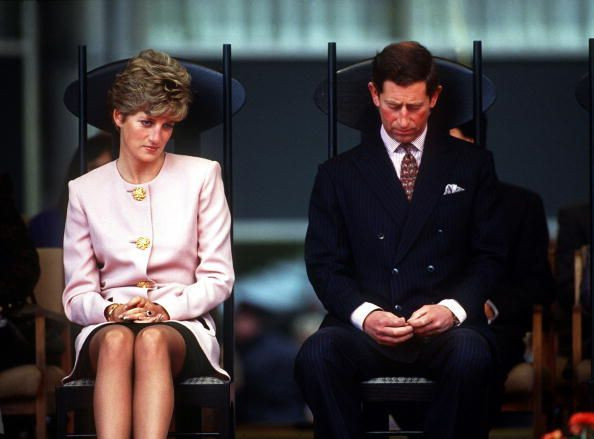Prince Charles Carried 'Enormous Burden' Through Princess Diana's Death And Funeral, Royal Expert Says
KEY POINTS
- Matt Robins, executive producer of CNN Original's docuseries "Diana," recently spoke about Prince Charles
- The royal expert began to empathize with his subjects, especially Charles, in the process of making the documentary
- Robins said he saw Charles as a person who had to "make impossible decisions" through Diana's death and funeral
Prince Charles had tough decisions to make as a royal in the wake of Princess Diana's death in 1997, according to a royal expert.
While promoting CNN Original's six-part documentary series "Diana," royal expert Matt Robins recently weighed in on the Prince of Wales and the "enormous burden" he carried after Princess Diana died from the injuries she sustained in a car crash in the Pont de l'Alma tunnel in Paris on Aug. 31, 1997.
"I think by the end of Diana’s journey, I see [Charles] as grief-stricken," the documentary's executive producer told Us Weekly. "I see him as somebody who carried an enormous burden through her death and her funeral, somebody [who] has to make impossible decisions."
Robins continued, "You know, he has been criticized for the fact that [his sons Prince William and Prince Harry] walked alongside him [during the procession], but what do you do, and how many of us would make the perfect call every time, where the eyes of the world [were] upon us?"
According to Robins, he started to empathize with his subjects, especially with the Prince of Wales, 73, in the process of making the CNN series.
The royal expert explained that the first episode of the docuseries will go into detail about "what it’s like to be Charles," including the pressure and the weight on his shoulders as the heir to the British throne.
Sharing further details about the filmmaking process, Robins admitted that he now has a "lot of empathy" for Prince Charles and said he has come to believe that members of the royal family "don't necessarily" want to become the monarch and bear the pressure and difficulties that come with the job.
"I kind of feel, like, the pressure and the toll on their mental well-being is a factor that perhaps none of us really understood back then — as we saw them as people that were able to do whatever they wanted, they were privileged people. They lived in this, kind of, gilded cage," Robins explained.
Robins also discussed how watching the royals grieve the death of Princess Diana helped to humanize their family.
The "Chameleon" producer suggested that the members of the royal family learned for the first time just how "emotionally connected" people are to them after the late princess' death.
He specifically pointed to the wave of applause that came through Westminster Abbey after the eulogy at Princess Diana's funeral as a moment with "a tidal wave of emotion" that would be "impossible not to be affected by" as a human.
During Meghan Markle and Prince Harry's interview with Oprah Winfrey for a CBS special earlier this year, the Duke of Sussex had claimed that his father Prince Charles and brother Prince William were "trapped" within the royal family.
"My father and my brother, they are trapped. They don't get to leave. And I have huge compassion for that," he was quoted by Harper's Bazaar as saying, months after he and Markle stepped back as working royals and moved to California.
However, royal expert Katie Nicholl, author of "William and Harry," later refuted Prince Harry's statement, citing sources close to Prince William as saying that this was "very much not the case."
"[Prince William is] very willing to embrace his destiny as a future king, and he's very happy to step up to his responsibilities," she told Entertainment Tonight.
"Diana" airs on CNN on Sundays at 9 p.m. EST and is available to stream in its entirety on CNN On Demand.

© Copyright IBTimes 2025. All rights reserved.






















